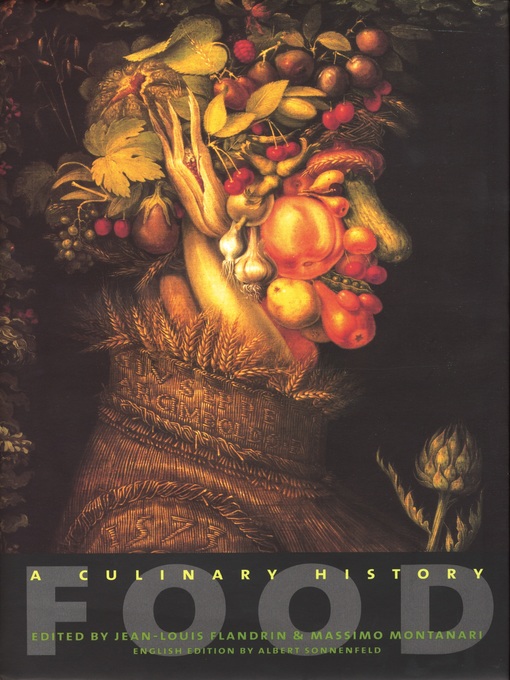When did we first serve meals at regular hours? Why did we begin using individual plates and utensils to eat? When did "cuisine" become a concept and how did we come to judge food by its method of preparation, manner of consumption, and gastronomic merit?
Food: A Culinary History explores culinary evolution and eating habits from prehistoric times to the present, offering surprising insights into our social and agricultural practices, religious beliefs, and most unreflected habits. The volume dispels myths such as the tale that Marco Polo brought pasta to Europe from China, that the original recipe for chocolate contained chili instead of sugar, and more. As it builds its history, the text also reveals the dietary rules of the ancient Hebrews, the contributions of Arabic cookery to European cuisine, the table etiquette of the Middle Ages, and the evolution of beverage styles in early America. It concludes with a discussion on the McDonaldization of food and growing popularity of foreign foods today.
- Arab American Heritage
- Easter & Lent 2025
- Passover 2025
- National Autism Awareness Month
- National Poetry Month 2025
- Earth Day 04/22/2025
- Library Love
- Financial Literacy
- Buried in the Garden: Garden, Farm, Flower Cozies
- New eBook additions
- Best Books of 2024
- In Memoriam 2024
- Healthy Eating Cookbooks
- See all ebooks collections
- Arab American Heritage
- Easter & Lent 2025
- National Autism Awareness Month
- National Poetry Month 2025
- Library Love
- Earth Day 04/22/2025
- Financial Literacy
- Buried in the Garden: Garden, Farm, Flower Cozies
- New audiobook additions
- Onyx Storm Read- Alikes
- Best Books of 2024
- In Memoriam 2024
- Coping With Stress & Anxiety
- See all audiobooks collections
- #ownvoices / Diverse Books
- Antiracism Resources
- Sheet Music & Song Books
- Bücher auf Deutsch / Books in German
- Civil Service Test Prep
- The Great Courses
- QuickReads Collection
- See all featured collections collections



